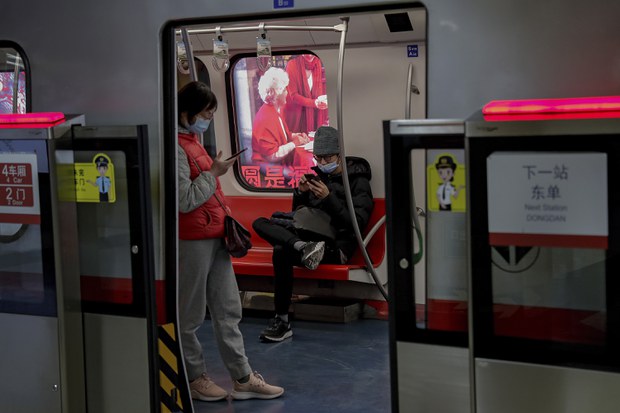China clamps down on social media comments under news stories
Share

China has ordered all online platforms to seek political approval for user comments – even emoticons – under news stories before they’re published.
China is clamping down on social media comments, ordering all websites, apps and other platforms to seek political approval for public comments – including emoticons – under news stories before they’re published in the latest expansion of government censorship.
“Wherever comments are enabled on a news item, a system must be set up to review comments prior to posting,” a directive from the powerful Cyberspace Administration said Wednesday.
“Anyone providing comments under posts within the territory of the People’s Republic of China must abide by these regulations,” it said.
The rules apply to all platforms that have the capacity to display public opinion or be used for “social mobilization,” and to comments in the form of text, emoticons, images, audio and video, the directive said.
Comments on non-news posts are to be moderated after posting, it said. The regulations take effect Dec. 15.
Service providers must set up dedicated teams to review and edit comments, and strengthen the training of staff, and set up a “user classification” system and a “credit evaluation” of users’ commenting behaviors, it said.
The moves come after authorities in Xinjiang said they were investigating three men for “maliciously flooding” a live-streamed government press conference with comments critical of COVID-19 restrictions in the regional capital, Urumqi.
The Cyberspace Administration had already banned anonymous commenting in a 2017 directive that also required online service providers to collect information about the identities of such commentators. The new rules will supersede that directive, according to state broadcaster CCTV.
Squelching public discourse
Zhejiang-based scholar Jiang Gan said the authorities are likely going after comments as a last bastion of public criticism, particularly when linked to events in the news.
“The authorities don’t want hot topics like major news stories or disasters that the public might care about to start trending,” Jiang told RFA. “They are imposing various regulations on information service providers to restrain [online commenting].”
Jiang said the government is likely seeking to wipe out any public criticism of government policy, including party leader Xi Jinping’s zero-COVID policy, in the wake of the 20th Communist Party congress in October.
Shizuoka University professor Yang Haiying said the move has garnered some attention in the Japanese media. “It shows they want to extend their control of cyberspace, and maintain a pristine image for the Communist Party,” Yang said.
“It will mean that people can’t comment on matters like … zero-COVID, or local banking or other issues.”
Washington-based think tank Freedom House identified online comments and hashtag campaigns as a significant form of public dissent in China.
‘People in China are speaking out’
In an article on its website on Thursday, Kevin Slaten, who heads the group’s China Dissent Monitor, wrote that “people in China frequently challenge those in power, both collectively and individually.”
“In the streets, on banners, in cyberspace, collectively, and individually—people in China are speaking out,” the article said, citing “notable online dissent such as large-scale hashtag campaigns and viral posts.”
It cited an example in which hundreds of thousands of Weibo users criticized authorities over COVID-19 policies, using a hashtag linked to the arrest of a woman and her father in Dandong after they challenged local pandemic restrictions to seek medical treatment in hospital.
In another example on the China Dissent Monitor website, homebuyers used a hashtag on Weibo to accuse the Changsha Municipal Commission of Housing and Rural and Urban Construction for failing to supervise the developer of a housing project after they suspended construction of homes already paid for.
“[The Chinese Communist Party] treats the act of collectively, publicly challenging any authority as a potential threat … particularly when the protesters can win concessions,” Slaten wrote.
“This is why ‘social stability’ is ingrained in all levels of governance and ability to enforce it is among the top metrics considered for party cadre promotion,” he said.
“It is why Xi has put so much emphasis on choking civic space and securitizing society,” he wrote. “The aim is to reduce the ability of citizens to mobilize.”
Translated and written by Luisetta Mudie. Edited by Malcolm Foster







